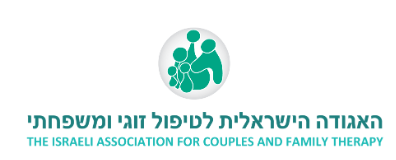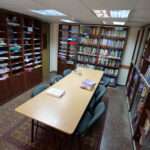Core Training Program
in Individual, Couples and Family Therapy

The two-year core training program provides an intensive educational and practical immersion into the theoretical and real-world applications of working with individuals, couples and families, including live supervision of therapy sessions, and hands-on clinical experience working with a diverse range of clients. Therapists have access to full clinical resources like consultation rooms for individuals, families and children, a library, and state-of-the-art technology for live and recorded sessions.
The Family Institute is recognized by the Israeli Association for Couples and Family Therapy as a category A institution.

What Does The Core Program Include?
 Education
EducationThe educational component of the two-year couples and family therapy training program is an intensive immersion in the theoretical and practical applications of working with families. The program provides you with a carefully structured educational and training experience including classes on personal growth, family therapy techniques, couple’s counseling and more.
 Group Supervision
Group SupervisionGroup and live supervision is one of the most powerful experiences in training to become a therapist. It includes presenting and observing live therapy sessions behind a one way mirror. Discussion, receiving feedback and peer support with facilitation from an experienced clinical supervisor provide invaluable growth experience.
 Individual Supervision
Individual SupervisionReal-world experience is essential to your clinical skill development as a therapist. Your hands-on training will begin early and build throughout the program. You will learn to practice under the guidance of experienced clinical supervisors utilizing process recordings and intensive live and video-supported supervision.
 Client Contact
Client ContactThe Family Institute provides you with the opportunity to work with diverse populations: adults, couples, individuals and families from various cultures and socioeconomic backgrounds giving you the opportunity to gain a breadth of clinical experiences within a professional setting.
 Clinical Resources
Clinical ResourcesYou will be given access to a variety of clinical resources including a well-stocked library and staff room. You will have use of our beautifully appointed consultation rooms including large rooms designated for families, child-friendly rooms, supply closet and a designated sandtray room. In addition, you will be able to utilize our state of the art technology to access courses online, record your sessions, generate receipts and more.
 Community and Family
Community and FamilyOne of the most crucial aspects in the development of our trainees is the continued and frequent opportunities for trainees to meet and exchange ideas with each other, with advanced therapists and with the clinical staff. With a student-faculty ratio of 5:1, you will be able to build relationships with, and learn from, the supervisory team contributing to the development of a more mature and well-rounded professional self.
Educational Component
*Please note, all courses are tentative and subject to change.
Families and Systems
This is a basic theory course. Systems are appreciated through the lens of Bowen differentiation theory. Other theories learned are structural, strategic, narrative and paradoxical. The theoretical approach emphasizes the importance of dyadic co-creation among family members and adjusting therapeutic expectations and technique to family level of differentiation.
Introduction to Couples Counseling
Basic Counselling for Family Therapists
Personal Growth for Family Therapists
Advanced Couples Therapy
This more advanced course addresses the clinical challenges of couples in distress. Techniques for conflict resolution go through maintaining the couple and helping the couple to separate if necessary. Emotional aspects of physical intimacy are explored. Managing divorce conflict and custodial disputes are defined.
Psychopathology for Family Therapists
Advanced Techniques in Family Therapy
Integration of Family Theory and Technique
Family Law
Family Therapy and Ethics
Admission Requirements
Trainees must have the following in order to be considered for admission to the core training program at The Family Institute:
- Master's degree in a field related to mental health from an accredited university.
- Ability to work evening hours.
- Adherence to cultural and religious sensitivities
- Completion of application process.
- Ability to offer psychological services in Hebrew is preferred.
What is the weekly time commitment?
6 hours
Educational Program
The English program takes place on Mondays from 9 a.m. to 3:30 p.m. with breaks for lunch and Mincha.
5 hours
Client Contact
A minimum of 5 client contact hours, with some being seen in the evenings.
1 hour
Individual Supervision
With a minimum of 34 hours of individual supervision per year.
2 hours
Group Supervision
Groups will meet on a designated day, determined by the group supervisor.
